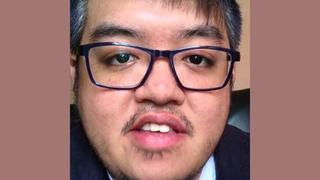Jimmy Carter says he's "prepared for anything that comes" as doctors begin radiation treatment of cancer that has spread from his liver to his brain.
The 39th president of the United States told reporters on August 20, 2015 that he has "very small spots" on his brain.
"It is in the hands of God, whom I worship," Carter, 90, said a news conference at the Carter Center a week after revealing he was diagnosed with cancer that had spread from his liver other areas. "I've had a wonderful life. I'm ready for anything and I'm looking forward to new adventure."
The Atlanta news conference, which lasted 40 minutes, came a week after Carter released a short statement revealing his cancer diagnosis. "Recent liver surgery revealed that I have cancer that now is in other parts of my body, Carter's written statement said. "I will be rearranging my schedule as necessary so I can undergo treatment by physicians at Emory Healthcare," he said in his initial statement.
STATEMENT from former U.S. President Jimmy Carter on his health: http://t.co/en19mF3jOx
-- The Carter Center (@CarterCenter) August 12, 2015
Watch a clip from his news conference:
Although Carter failed to win election to a second term, he has earned praise as "the greatest ex-president" with his private work around the world through the Carter Center in the 35 years since when he lost to Ronald Reagan.
Carter was a Georgia peanut farmer and state senator before his election as Georgia's governor in 1970. His door-to-door campaign in Iowa, boosted by his "peanut brigade" of volunteers, and his patented toothy smile, earned him a string of victories in the 1976 Democratic presidential primaries that captured his party's nomination. That November, Carter defeated Gerald Ford, who had been hurt by his pardon of Richard Nixon.
Carter became known as a champion of human rights around the world. His foreign policy accomplishments as president included the Panama Canal treaties, the Camp David Accords, the treaty of peace between Egypt and Israel, the SALT II treaty with the Soviet Union, and the establishment of U.S. diplomatic relations with the People's Republic of China.
Carter's popularity plunged in the wake of the Iran hostage crisis that started on November 4, 1979 -- a year before he would face Ronald Reagan in the general election. The 52 U.S. embassy employees and civilians were finally released on January 20, 1981 -- moments after Carter left office.
Carter returned to Georgia after his presidency to create the nonpartisan and nonprofit Carter Center in Atlanta, which addresses national and international issues of public policy," according to the center's description.
"Carter Center staff and associates join with President Carter in efforts to resolve conflict, promote democracy, protect human rights, and prevent disease and other afflictions," the description said. "The Center has spearheaded the international effort to eradicate Guinea worm disease, which is poised to be the second human disease in history to be eradicated."
Carter was awarded the Nobel Peace Prize for 2002 "for his decades of untiring effort to find peaceful solutions to international conflicts, to advance democracy and human rights, and to promote economic and social development."
Asked about any regrets, Carter said "I wish I had sent one more helicopter to get the hostages, and we would have rescued them, and I would have been reelected." He was referring to the failed mission to free the 52 American hostages held in Iraq that ended in a military disaster on April 24, 1980. Eight American servicemen died and no hostages were rescued after a collision between a C-130 airplane and helicopters in an Iranian desert.
He does have one goal left on his bucket list. "I'd like for the last guinea worm to die before I do."
Lead Stories' Trendolizer scours social networks worldwide for trending content about Jimmy Carter. Scroll down to see the latest.















